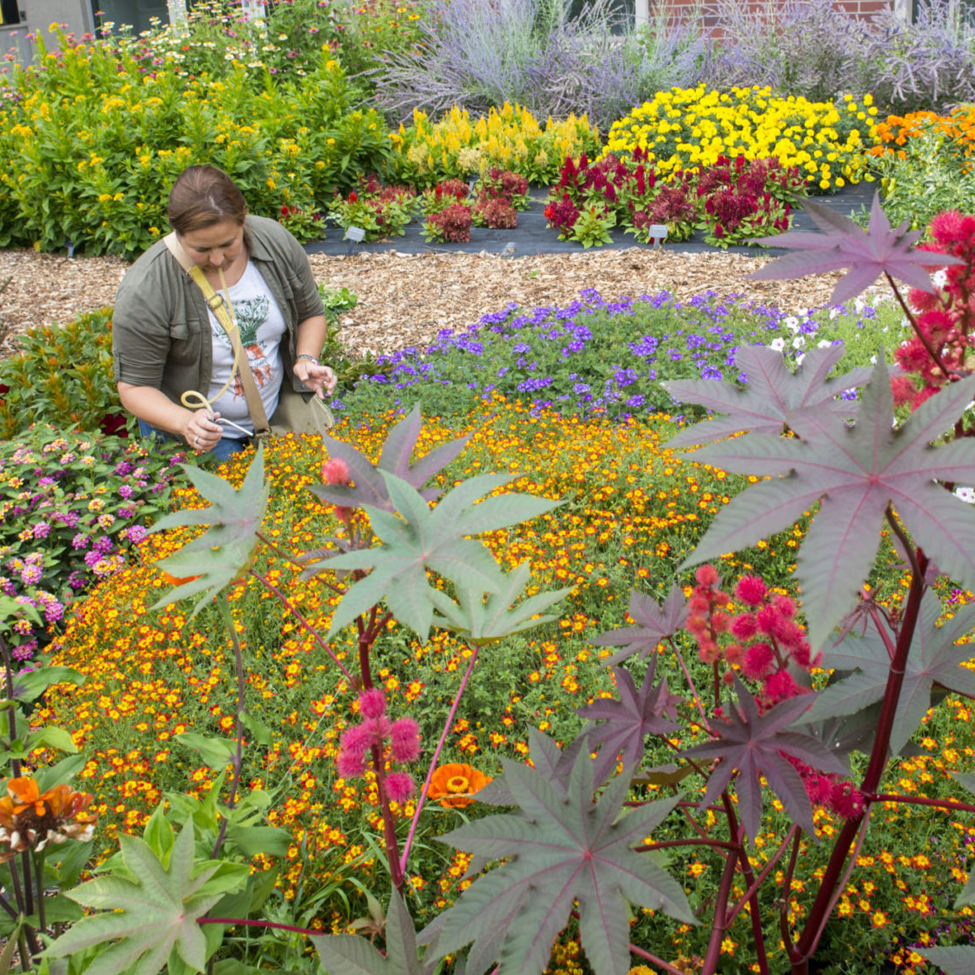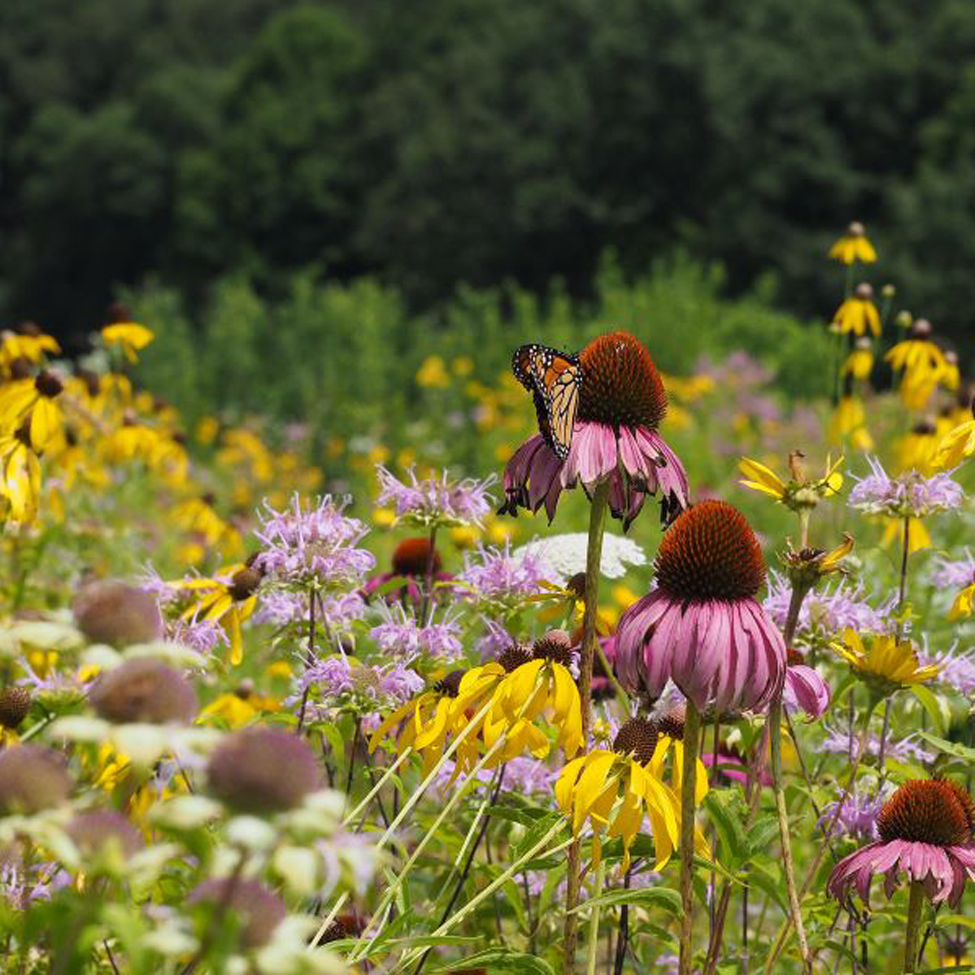Our Lecture Series is presented on the 2nd Monday of the month from 7:00 to 8:00 pm at the Milwaukie Center – 5440 SE Kellogg Creek Dr. Milwaukie, OR 97222. Talks are free and open to the public.
*Master Gardener Volunteers: All the upcoming lectures are approved for one hour continuing education credit.

May 13, 7 – 8pm: Beyond Plants: Sustainable Turfgrass Management: Dr. Alec Kowalewski, OSU
This presentation will cover the principles (species selection, mowing, fertilization, cultivation and pest management) of sustainable turfgrass management. Emphasis will include improving sustainability through reduced carbon emissions and minimizing carbon sequestration, reduced fertilization and optimum fertilizer selection, and drought tolerant species selection and reduced irrigation practices.
Alec Kowalewski, PhD., has over 20 years of research experience and multiple publications on various cool-season and warm-season turfgrass species obtained while employed at Michigan State University, Abraham Baldwin Agricultural College, the University of Georgia, and Oregon State University. Alec is an Associate Professor at Oregon State University and teaches several undergraduate classes in the Department of Horticulture. Alec also provides Extension material for stakeholders in turfgrass and landscape management. https://agsci.oregonstate.edu/users/alec-kowalewski

June 10, 7 – 8pm: The Worms Beneath our Feet and Our Worm Bins: Kris LaMar, Master Gardener
Worms get a bad rap. “Can of worms.” “Food for worms.” “Worm one’s way in.” Only “Bookworm” implies anything worth respect. But we gardeners really should accord them that. That may be why Charles Darwin studied them for 39 years over 100 years ago. Since the publication of Mary Applehof’s book “Worms Eat My Garbage” in 1982, public interest has grown in the topic of vermiculture, or worm composting. Composting is we humans’ attempt to manage worms’ lives, and profit from their waste. But Mother Earth developed the technique of soil health and enrichment millennia ago, and worms have been a major part of that ever since.
Kris LaMar retired from the legal profession in 2009, and became intrigued by soil health after moving to an acre in Damascus. She has been composting throughout her journey as a Master Gardener and Master Recycler since 2013. Intrigued by the interactions between and among soil elements, she is a frequent speaker on soils, microbes, soil health, and the practically unknown value of worms in our environment. Although garden club members and library patrons have been appreciative, her work with pre-school through middle school students has opened a new audience of worm fans. Perhaps they, too, can become bookworms.

October 14, 7 – 8pm: Success with Planting Garlic: Chip Bubl, OSU Extension
Please check back for more information

November 12 **Tuesday** 7 – 8pm – Characteristics and Natural History of Conifers in the Pine Family (Pinaceae), Elizabeth Price, author and Master Gardener
The Pacific Northwest (PNW) is one of the most diverse regions in the world for conifers. Our climate has much in common with many other areas of the planet where conifers maintain dominance over flowering trees, making the PNW an ideal place to include both native and non-native conifers in the home landscape. This talk will focus on the pine family (Pinaceae). The foliage, cone, bud, and bark characteristics that differentiate spruce, true fir, hemlock, Douglas-fir, larch, and true cedar will be highlighted. A bit of history on each of these groups of conifers will also be presented.
Elizabeth Price has been a certified Master Gardener since 2008 and has been leading workshops on conifers for other Master Gardeners and for the public for over a decade. This interest in conifers lead to her writing a book on the subject, Native and Ornamental Conifers in the Pacific Northwest: Identification, Botany, and Natural History, published by Oregon State University Press. She holds an MFA in creative writing from the University of Arizona and has worked as a professional writer, editor, and curriculum designer.

December 9, 7 – 8pm: Native plants in the Home Garden: Eric Butler, Educator and Master Gardener
While gardening with native plants today is more popular than ever, gardeners often wonder how to best use them in the landscape. This presentation explores what makes a plant “native”, situates native plants in the context of native ecosystems, and adopts those ecosystems into concepts for the home garden. It also discusses where to obtain native plants and lists relevant resources.
Eric Butler is a professional ecologist with Clackamas River Basin Council. He has been an OSU Extension Master Gardener since 2015, and has also taught classes and workshops at Portland State University, Clackamas County Tree School, Clackamas Community College Environmental Learning Center, and local high schools.
Past Lectures









April 8, 7 – 8pm: Beyond Plants: What Else Your Garden Needs to Support Pollinators: Matthew Shepard, Director of Outreach & Education, The Xerces Society for Invertebrate Conservation
Plants are wonderful. A garden wouldn’t be a garden without them. But if you want a garden that can support bees, butterflies, and other pollinators you need to create a place that can support their entire life cycle, and that means going beyond just plants. Matthew Shepherd of the Xerces Society will discuss practical ways in which you can bring diversity into our landscapes and make your garden a pollinator haven—and what better way is there to honor our planet for Earth Day than to help heal her wounds?
Matthew Shepherd has spent thirty-five years working with people from all walks of life to create better places for wildlife. He works for the Xerces Society for Invertebrate Conservation and in the last two decades has helped build pollinator conservation from an obscure issue to a topic of dinner-table conversation and wide engagement. Matthew is author or coauthor of numerous articles and other publications, including Attracting Native Pollinators (Storey Publishing, 2011) and Gardening for Butterflies (Timber Press, 2016). He learned gardening at his mother’s side and has created and maintained wildlife gardens everywhere he has lived. https://xerces.org/staff/matthew-shepherd

March 11, 7 – 8pm: Regenerating Urban Landscapes: Let Nature Be Your Guide: Carole Hardy, educator & Master Gardener
Urbanization disrupts the function of ecosystems which threatens biodiversity and human health particularly among vulnerable populations. As populations within the Portland Metro area increase, transportation and development continue to fragment ecosystem connections across the landscapes. The loss and fragmentation of ecosystems is a major driver of species decline which can lead to the extinction of pollinators, migrating bird and amphibians and can limit the options for climate-caused range shifts for mammals and vegetation. Fragmented landscapes disrupt nature’s processes worsening the impact of natural disasters such as storms, floods, wildfires, heat waves and drought. These effects in turn reduce the resilience of communities and wildlife in urban areas.
As stewards of the land, we can increase the resilience of our urban areas by working to regenerate landscapes. As Master Gardeners, we are positioned to implement regenerative practices, teach communities how to participate in regenerative practices, and advocate for change in policies and practices at a local, state and national scales.
Carole teaches environmental science and management classes at Portland State University leveraging her educational background in forest ecology and urban sustainability. She received her Master Gardener certification in 2022 and works in several demonstration gardens in the Metro area. She also volunteers with the Backyard Habitat Program to certify yards. She worked as a director of communications in state government and private sector businesses for many years. Today she advocates for systematic change to policy and practices that support climate resilience, biodiversity and equitable access to nature. She seeks to find common ground among diverse stakeholders to regenerate and protect urban and wild ecosystems.

February 12, 7 – 8pm: We Study Gardens: an update from the OSU Garden Ecology Lab: Dr. Gail Langellotto, OSU
The OSU Garden Ecology Lab was founded in 2016, to develop research-based recommendations that are suitable and scalable to home and community gardens. In this talk, Dr. Langellotto will provide an overview of work going on in the laboratory, with a focus on two studies in various stages of progress: 1) how the cultivation of native plants, to produce native cultivars, affects pollinator visitation, and 2) working towards an integrated approach of building-integrated agriculture.
Gail Langellotto is a Professor of Horticulture at Oregon State University, and the principle investigator of the Garden Ecology Lab. In addition, she coordinates OSU’s Urban Agriculture Certificate Program, leads a multi-state effort to grow support for native plant nursery growers (which is called ‘Native Plant Connection’), and co-leads the College of Agricultural Sciences and leads the Department of Horticulture diversity, equity, inclusion, and access committees. Previously, she coordinated the statewide Master Gardener Program from 2007-2023, and draws direct inspiration for research projects from conversations with Master Gardener volunteers. https://blogs.oregonstate.edu/gardenecologylab/
See the links below for details and program notes from previous years. *Note if lectures were presented as a webinar the links will be included.
2011 | 2012 | 2013 | 2014 | 2015 | 2016 | 2017 | 2018 | 2019 | 2020 | 2021 | 2022 | 2023
